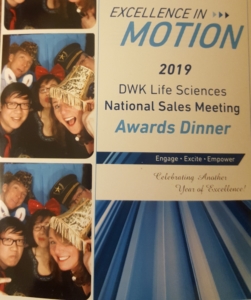The Flannery Sales Systems’ OLP is another tool we created to:
- Enable our customers to understand buyer behavior
- Reinforce the core concepts and selling skills of Sales Process for all individuals in customer facing roles.
- Provide practice and repetition of skills in a self-paced, ongoing basis.
- Help Managers to understand where their sellers are competent, where they need coaching, and how to improve results.
The web based portal (view screen shot here) includes:`
- Six reinforcement videos by sales stage and skill; each are 5 to 7 minutes long (click here to view a sample)
- e-Toolkits that support each stage
- A reinforcement quiz for each stage
- The Manager’s Coaching Room
- Support with live phone coaching sessions
In a previous article (How To Make Learning Stick), one of the key tenets of Adult Learning Theory emphasized a need for a learner (salesperson) to use repetition as a way to embed additional skills into their everyday routine.
Coaching is a major component to reinforce the use of enhanced skills, but until the new skills are entrenched, coaching will be difficult. The portal is designed to provide the repetition, and then offers the visibility for a specific skill that needs improvement (i.e. qualification, establishing value, negotiation, etc.).
Once the salespeople go through all six modules, Managers will be able to see the results of the scores on the quizzes completed. This provides the Managers with the objectivity needed to pinpoint coaching efforts.
Sales skills is often one of the last things to be addressed in the overscheduled world of most Sales Managers. The OLP provides Managers with an objective way to assess skills, as well as a platform to create skill related topics for sales team meetings.
Marketing, Customer Service and Inside Sales personnel can also benefit from the use of this valuable tool, as the OLP provides a window into the buyer’s world, the sales process that is being used in the field, and how other customer facing roles can use it in their respective roles.
For your FREE 30 DAY TRIAL, please contact John Flannery at john@drive-revenue.com or call 858-518-7039.






